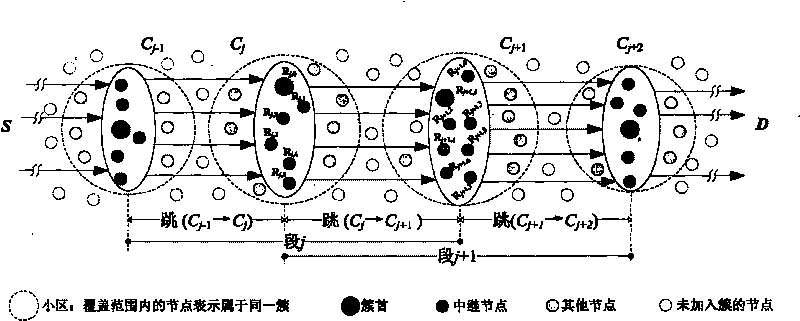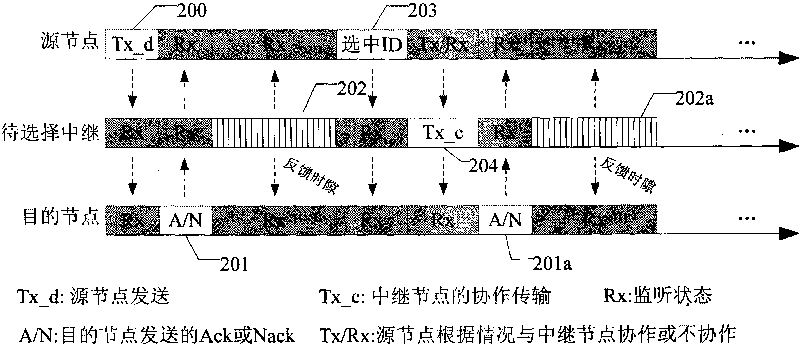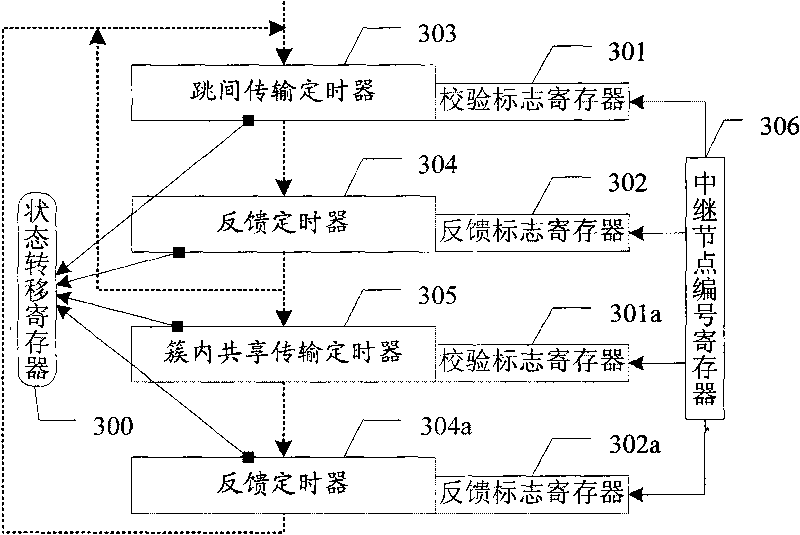Feedback method for cooperating relay transmission
A cooperative relay and relay node technology, applied in the field of communication, can solve the problems of wasting wireless resources, difficult to predict, high overhead, etc., achieve resource scheduling and allocation controllability, easy optimization and implementation, and improve resource utilization Effect
- Summary
- Abstract
- Description
- Claims
- Application Information
AI Technical Summary
Problems solved by technology
Method used
Image
Examples
Embodiment
[0049] image 3 It is a schematic composition diagram of an embodiment of a feedback system for cooperative relay transmission in the present invention
[0050] In this embodiment, the feedback system for cooperative relay transmission includes a state transfer register 300, a check flag register 301, 301a, a feedback flag register 302, 302a, an inter-hop relay transmission timer 303, a feedback timer 304, 304a, A transmission timer 305 and a relay node addressing register 306 are shared within the cluster.
[0051] The state transfer register 300 can be represented by a combination of multiple state quantities, and is used to mark a series of working stages in the relay transmission process of the system and equipment, such as the inter-hop relay transmission process and the inter-hop relay transmission process involved in the embodiment of the present invention. Following the transfer feedback process, intra-cluster shared transfer process, and intra-cluster shared transfer...
PUM
 Login to View More
Login to View More Abstract
Description
Claims
Application Information
 Login to View More
Login to View More - R&D
- Intellectual Property
- Life Sciences
- Materials
- Tech Scout
- Unparalleled Data Quality
- Higher Quality Content
- 60% Fewer Hallucinations
Browse by: Latest US Patents, China's latest patents, Technical Efficacy Thesaurus, Application Domain, Technology Topic, Popular Technical Reports.
© 2025 PatSnap. All rights reserved.Legal|Privacy policy|Modern Slavery Act Transparency Statement|Sitemap|About US| Contact US: help@patsnap.com



